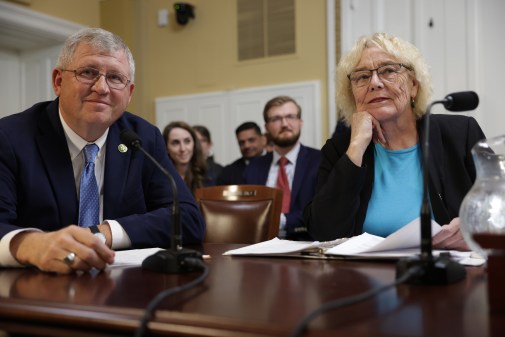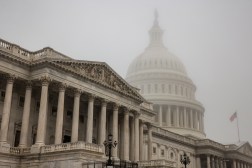The House passed a bill Thursday to limit the National Security Agency’s surveillance activities by an overwhelming margin.
Though several important backers of the USA Freedom Act pulled their support, the House passed the Freedom Act, 303-121. The bill now faces the Senate, where some lawmakers have expressed concern about the removal of certain reforms in the final House version.
While some privacy advocates and lawmakers argue the bill does not go far enough to curtail mass surveillance, the Freedom Act still prohibits bulk collection of telephone metadata and requires the Foreign Intelligence Surveillance Court to approve any requests for phone records from telecommunications firms.
“What is being considered is not the bill that was marked up by the House Judiciary Committee,” said Rep. Zoe Lofgren, D-Calif., speaking on the House floor. “Certain key elements of this bill were changed. I think it’s ironic that a bill that was intended to increase transparency was secretly changed between the Committee markup and floor consideration.”
Among the most controversial changes to the bill’s language was a broadening of the definition of who or what NSA is allowed to monitor. The original version of the bill said the government could force telecommunications companies to hand over records based on search terms that “uniquely describe a person, entity or account.” But that language was changed to include the phrase “such as” — expanding NSA’s search authority to “a discrete term, such as a term specifically identifying a person, entity, account, address, or device.”
The Reform Government Surveillance coalition — a group of powerhouse tech companies, including Facebook, Google and Apple — pulled its support for the bill, citing in a statement that the House changes have moved it “in the wrong direction.”
“While it makes important progress, we cannot support this bill as currently drafted and urge Congress to close this loophole to ensure meaningful reform,” the group said.
The Electric Frontier Foundation said the House “gutted” the bill.
“Earlier today, House Leadership reached an agreement to amend the bipartisan USA FREEDOM Act in ways that severely weaken the bill, potentially allowing bulk surveillance of records to continue,” EFF wrote in a blog post Tuesday. “The Electronic Frontier Foundation cannot support a bill that doesn’t achieve the goal of ending mass spying. We urge Congress to support uncompromising NSA reform and we look forward to working on the Senate’s bipartisan version of the USA FREEDOM Act.”
Disapproval for the bill is far from universal, though, made obvious by its huge margin of victory Thursday and more than 150 co-sponsors.
The White House gave its approval of the current bill Wednesday, which could have something to do with its changes. Rep. Jim Sensenbrenner, R-Wis., the sponsor of the bill, said it took intense negotiations to get the president and the administration on board, but eventually they compromised. Should the bill pass the Senate, President Obama is likely to sign it into law.
But the bill faces challenges in the Senate.
Thursday before House voting, even Sensenbrenner said it wasn’t perfect, but that shouldn’t be reason for killing it.
“Perfect is rarely possible in politics, and this bill is no exception,” he said. “Let me be clear, I wish this bill did more. To my colleagues who lament changes, I agree with you. To privacy groups who are upset about lost provisions, I share your disappointment. But this bill still deserves support. Don’t let the perfect be the enemy of the good.”






